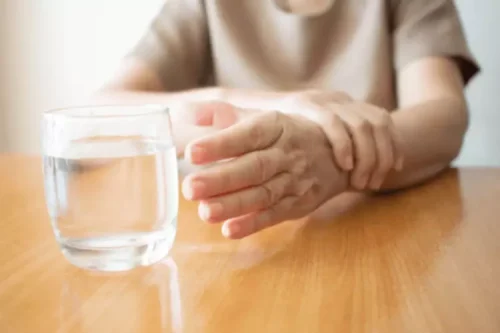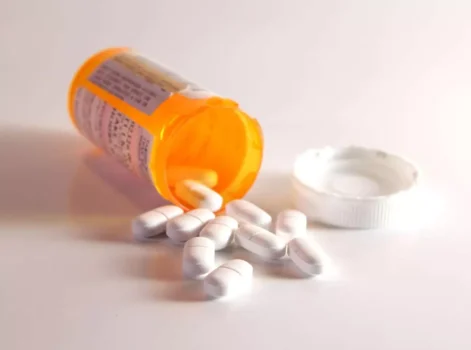
Listen to relatives, friends or co-workers when they ask you to examine your drinking habits or to seek help. Consider talking with someone who has had a problem with drinking distinguish between alcohol abuse and alcoholism but has stopped. By Buddy TBuddy T is a writer and founding member of the Online Al-Anon Outreach Committee with decades of experience writing about alcoholism.
Health Alerts from Harvard Medical School

Drinking alcohol too much or too often, or being unable to control alcohol consumption, can be a sign of alcohol misuse and, in some cases, alcohol use disorder (AUD). Typically, a diagnosis of alcohol use disorder doesn’t require any other type of diagnostic test. There’s a chance your doctor may order blood work to check your liver function if you show signs or symptoms of liver disease. Symptoms of alcohol use disorder are based on the behaviors and physical outcomes that occur as a result of alcohol addiction.
- For instance, you may start drinking so much that you black out (lose consciousness).
- Some people may drink alcohol to the point that it causes problems, but they’re not physically dependent on alcohol.
- Although it may seem counterintuitive, suddenly cutting yourself off from all alcohol when you’re a heavy drinker can also become a medical emergency.
- The physical harm related to alcohol is a consequence of its toxic and dependence-producing properties.
- It is intended as a resource to understand what treatment choices are available and what to consider when selecting among them.
- Not everyone with alcohol dependence, therefore, experiences physiological dependence.Welcome to High Quality Replica Rolex Watches Sales on www.rolexreplicaswissmade.com, Buy the Best Replica Rolex Watches in the UK.
What causes alcohol use disorder?
- Nearly all risks involved with alcohol addiction may be avoidable or treatable, with successful long-term recovery.
- This section provides an overview of the issues for each special population.
- Although you usually feel shy or quiet when sober, alcohol makes you much more extroverted, like the life of the party.
- When seeking professional help, it is important that you feel respected and understood and that you trust the person, group, or organization to help you.
- Heavy drinking in this population is five or more drinks in one day or 15 or more drinks in a week.
Homeless people who misuse alcohol have particular difficulties in engaging mainstream alcohol services, often due to difficulties in attending planned appointments. The 2004 ANARP found that only one out of 18 people who were alcohol dependent in the general population accessed treatment per annum. Access varied considerably from one in 12 in the North West to one in 102 in the North East of England (Drummond et al., 2005). Clinicians in the general medical setting should evaluate for sequelae of chronic alcohol use, which are many, given alcohol’s widespread effects on various organ systems. Alcohol causes and worsens many medical conditions, as discussed below. This activity provides 0.75 CME/CE credits for physicians, physician assistants, nurses, pharmacists, and psychologists, as well as other healthcare professionals whose licensing boards accept APA or AMA credits.
- Combined with medications and behavioral treatment provided by health care professionals, mutual-support groups can offer a valuable added layer of support.
- Alcohol is excreted in urine, sweat and breath, but the main method of elimination from the body is by metabolism in the liver where it is converted to acetaldehyde and acetate.
- The programme includes acceptance that one is powerless over alcohol, acceptance of the role of a higher power and the role of the support of other members.
- You may be able to better compare your options by assessing whether and how the program or provider measures success.
- Those with moderate to severe alcohol use disorders generally require outside help to stop drinking.
Drew Barrymore opens up about past addiction and admits to being ‘blackout drinker’
For most people who are alcohol dependent the most appropriate goal in terms of alcohol consumption should be to aim for complete abstinence. With an increasing level of alcohol dependence a return to moderate or ‘controlled’ drinking becomes increasingly difficult (Edwards & Gross, 1976; Schuckit, 2009). Further, for people with significant psychiatric or physical comorbidity (for example, depressive disorder or alcoholic liver disease), abstinence is the appropriate goal. However, hazardous and harmful drinkers, and those with a low level of alcohol dependence, may be able to achieve a goal of moderate alcohol consumption (Raistrick et al., 2006). For people who are alcohol dependent, the next stage of treatment may require medically-assisted alcohol withdrawal, if necessary with medication to control the symptoms and complications of withdrawal.
Alcohol misuse vs. alcohol use disorder

4.2. Psychological factors
What are treatments for alcohol use disorder?

